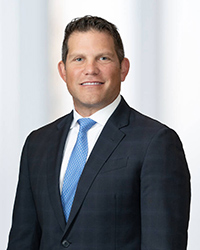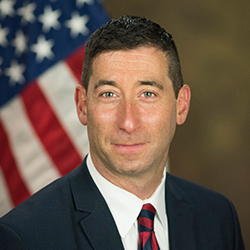In a world where unseen threats lurk in the shadows, the stakes for U.S. manufacturers have never been higher.

As the guardians of America’s economic and technological prowess, U.S. manufacturers find themselves on the front lines of a new kind of battle—one where national security is paramount. From the silent menace of cyberattacks to the money laundering, bribery and corruption, export controls, and sanctions vulnerabilities hidden within global supply chains, the challenges are as complex as they are critical. This note discusses the urgent and strategic measures U.S. manufacturers should take to protect not just their own interests, but the fabric of U.S. national security. Below we explore the high-stakes world where industry meets defense, and where every innovation could be the key to safeguarding our future.
As global threats evolve and regulatory requirements intensify, national security has pivoted from a purely governmental responsibility to a shared responsibility extending to all industries, regardless of whether their operations are primarily domestic or international. Navigating this new landscape is not without its challenges. Strategically aligning operations with national security priorities requires forethought and effort. Building strong public-private partnerships, assessing and addressing risks, developing robust global compliance programs and ensuring readiness to respond to compliance deficiencies as they arise.
In recent years, the U.S. has implemented a dramatic increase in policies aimed at countering national security threats. Government efforts aimed at safeguarding the nation’s interests — such as enhanced export controls and sanctions, heightened scrutiny of foreign investments, a renewed effort to combat money laundering and threat financing, and increased enforcement actions – call for greater engagement and investment from the private sector.
The resources and synergies offered by the federal government provide manufacturers with an opportunity to help strengthen national security through building effective public-private partnerships. These partnerships allow companies to collaborate with government officials, align on regulatory priorities, and share valuable information. In participating in a dialogue, companies can stay ahead of emerging threats, showcase their commitment to safeguarding the nation’s security, and access resources that improve their operations.
One of the most effective ways for companies to protect their interests is by implementing robust compliance programs. Forward-looking manufacturers are investing resources and relying on partners with expertise in navigating increasingly complex legal and regulatory requirements. The global nature of sanctions and the extraterritorial jurisdiction the United States has over certain transactions means that it is critical for companies to identify vulnerabilities and ensure compliance with national security focused regulatory requirements. Regularly conducted risk assessments enable manufacturers to evaluate their operations and partnerships to detect potential threats before they are realized. A proactive approach is the foundation for developing policies that embed national security considerations into daily decision-making.
Once implemented, ongoing monitoring is essential to ensure effectiveness. Auditing compliance measures regularly and adapting to shifts in regulatory expectations and threat landscapes helps companies stay ahead of potential challenges. Embedding national security considerations into operational DNA builds resilience, which enables manufacturers to safeguard their operations while maintaining a competitive advantage in a dynamic global market.
Unfortunately, even the most sophisticated compliance frameworks have gaps, and even highly trained personnel make mistakes. New threats and regulatory updates often emerge faster than companies adapt, and businesses often lack the time or expertise to address these developments internally. What distinguishes successful companies is their ability to respond swiftly and effectively when issues arise. When a mistake is identified—whether through an audit, regulatory inquiry, or internal review—it is critical to act decisively. This often involves engaging experts to assess the situation, remediate the gaps, and implement corrective actions. The goal should not be simply to resolve the immediate issue and get back to business as usual. The goal should be to adapt and strengthen the overall compliance framework to maximize the effectiveness and efficiency of business operations
Compliance is not a one-size-fits-all solution. Manufacturers must invest time and resources to establish robust compliance frameworks that meet their specific needs. Partnering with experienced advisors enables businesses to address vulnerabilities and be better equipped to navigate the ever-changing regulatory environment. Scenario planning and “wargame” workshops, for example, are excellent tools to train strategies to both identify and address risks, strengthen compliance programs and develop crisis management plans and protocols for responding to the litany of risks manufacturers face daily.
In an era of heightened national security concerns, manufacturers must embrace their role as key players in protecting the nation’s interests. Building public-private partnerships, implementing comprehensive compliance programs, and addressing gaps with agility are not simply operational necessities, they are strategic imperatives. By proactively aligning with government priorities and committing to continuous improvement, U.S. manufacturers safeguard their own long-term success.
About the Authors:

Patrick Gilman, Partner and Global Co-Head of National Security Investigations at Eversheds Sutherland. Gilman is a white-collar defense and national security attorney who represents individuals and corporations with global operations facing significant risk of criminal or regulatory liabilities. He is based in the firm’s Washington D.C. office.
Contact: Linkedin

Jonathan Freimann, Associate at Eversheds Sutherland. Freimann advises clients on all aspects of white-collar defense and national security with a focus on cybersecurity and data privacy matters. He is based in the firm’s Washington D.C. office.
Contact: LinkedIn
Scott Ellyson, CEO of East West Manufacturing, brings decades of global manufacturing and supply chain leadership to the conversation. In this episode, he shares practical insights on scaling operations, navigating complexity, and building resilient manufacturing networks in an increasingly connected world.